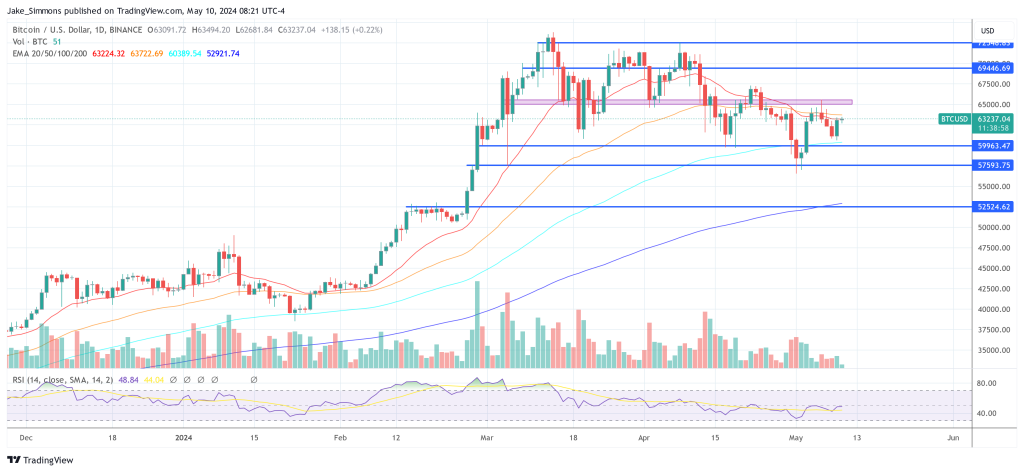ARTICLE AD BOX
Crypto exchange Kraken has intensified its fight against the US Securities and Exchange Commission (SEC) by formally submitting a reply in support of its motion to dismiss the agency’s lawsuit. The filing, dated May 9, 2024, challenges the SEC’s claim that Kraken operated as an unregistered exchange dealing with securities, specifically “investment contracts.”
Led by Matthew C. Solomon from Cleary Gottlieb Steen & Hamilton LLP, Kraken’s legal team disputes the SEC’s allegations, asserting that no specific investment contracts traded, brokered, or settled on Kraken’s platform have been identified. They argue that crypto assets alone, which are the only products alleged to have been handled by Kraken, do not meet the definition of investment contracts under federal securities laws.
Kraken Fights For The Entire Crypto Industry
The filing emphasizes a critical flaw in the SEC’s approach, accusing the regulatory body of conflating primary offerings conducted outside of Kraken with secondary crypto market transactions on the platform. Kraken’s attorneys contend that the SEC’s approach ignores the distinct legal treatment required for primary and secondary market transactions under the Securities Act of 1933 and the Securities Exchange Act of 1934.
Kraken’s submission states, “The transactions alleged to have occurred on Kraken are blind bid/ask secondary market sales of digital assets… unaccompanied by any contractual terms or other obligations that may have existed at the initial offering.” This, they argue, could improperly extend the SEC’s regulatory reach to virtually any digital asset or commodity by asserting an associated “investment concept” or “ecosystem.”
Further challenging the SEC’s jurisdiction, Kraken’s lawyers invoke the major questions doctrine, arguing that the expansive interpretation of regulatory authority over crypto assets should be explicitly authorized by Congress, not determined through litigation. They maintain that the Howey Test’s criteria — a standard used to define what constitutes an investment contract — are not met, as there was no investment of money in a common enterprise with a reasonable expectation of profits predominantly from the efforts of others.
The SEC initially sued Kraken in November, after previously settling charges over Kraken’s staking services. In its opposition filed last month, the SEC defended its actions, stating, “it is simply not the case that this enforcement action exceeds the authority Congress granted the SEC.” The SEC argued that its enforcement aligns with the Howey test and its Congressional mandate, dismissing claims of overreach.
Related Reading: Taiwan Sets Sights On Crypto Firms With Tough New Jail Time Laws
The court is scheduled to hear arguments on the motion on June 12, 2024. If Kraken’s motion to dismiss is granted by Judge William H. Orrick, it could set a significant legal precedent for the entire crypto industry, potentially limiting the SEC’s ability to regulate secondary market transactions of crypto assets under the current legislative framework.
At press time, Bitcoin traded at $63,237.

.png)
 8 months ago
4
8 months ago
4








 English (US)
English (US)